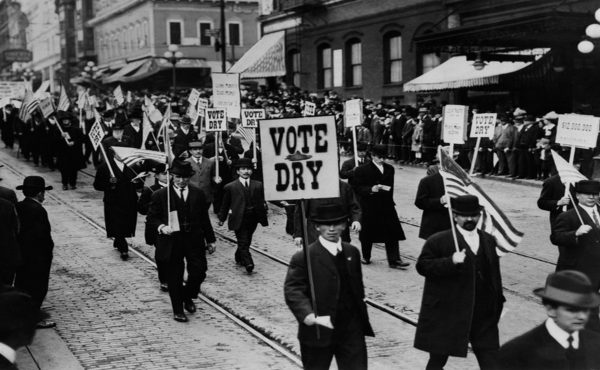
Here’s a question: How is it that Canadians were so blasé about the mass G-20 arrests, but now seem to be intriguingly hot and bothered about Tony Clement and Census-gate? And, as an admittedly tangential follow-up, what can this apparent contradiction in public opinion tell us about Toronto’s mayoral race?
Starting with question one. Think about our national motto, and especially the second two imperatives. Canadians don’t veer towards the authoritarian, as happens in the United States, but we like to keep things tidy, and the scenes of mayhem from the G20 protests certainly cast the die on public opinion.
But the same instinct is apparent in public reaction to the Conservative’s move to scrap the mandatory census long form. The census, apart from all its statistical usefulness, is an institution that imposes quantitative order on government and society, and therefore it supports our apparent craving (frequently unsatisfied) for “good government” (i.e., good = rational).
In a country not given to ideological extremes and starkly shaded political principles, many people intuitively understand the relationship between data and decision-making. The census is, above all, a supremely pragmatic document.
And therein lies Stephen Harper’s miscalculation. In the U.S., where suspicion of government is a permanent fixture of politics, it’s not a stretch to think that many Americans believe the personal information they denote on census forms finds its way into the wrong hands. A Zogby poll released in March 2010 revealed just that: fully 49% of those polled said they weren’t confident that the information would remain confidential (survey of 2,218 Americans, with a 1.5% margin of error).
A result like that all but screams wedge issue, no? I have no idea if Harper’s brain trust [sic] saw this poll (I found it on Time.com), but the question does present itself.
For all of Harper’s efforts, however, Canadians don’t generally despise their governments, nor does our public sector labour under the taint of conspiracy theories and other ideological delusions. Just think of the health care debate: does anyone talk seriously anymore about moving to a multi-payer system?
Which brings me to the Toronto mayoral campaign. In general, big cities depend especially heavily on the census data that supports social program spending geared at urban populations. All the mayoral candidates should be alarmed at Harper’s move, because it will make governing the city much more difficult.
But the extraordinary reaction to Census-gate tells me something else about public opinion at this moment: while the city is in an ugly mood, voters may think twice about embracing disorderly leadership by the time October 25 rolls around.
No surprise that Rob Ford is clearly the most chaotic candidate, confronting weekly bozo eruptions, the latest being The Star’s unflattering revelations about the mess he created during his much-hyped high school football coaching career.
Is there more where that came from? Put money on it. Will it take a toll? I’ll say yes.
Ford, after all, is not a good government candidate but a small government candidate in a city where the work of local government touches a lot of people.
His new website — respectfortaxpayers.com, supported by the inevitable Facebook page with 158 friends — promises to tally up all the waste he unearths.
By my count, his ten items to date only eliminate $25 million in spending (I’ve excluded the once-in-a-generation premium the City paid for the Bombardier subways, which he puts at $200 million.) That leaves $350 million more to cut in order to balance the operating budget, and I suspect Ford will have exhausted his supply of freebee cigarettes, junkets and chicken suits well before Labour Day.
In fact, the site is only days old, and Ford is already resorting to long-shot proposals, like the Gardiner demolition, rather than actual spending. (The website claims the Gardiner takedown is a “plan” and cites, by way of proof – there is none, of course – a 2008 National Post article which is long past its best before date.)
The point is that as the municipal election heads into the crucial fall sprint, Ford’s messy personal life and poor judgment skills, coupled with his inability to connect his cost-cutting mantra with specific proposals, will slam into the same wall of political pragmatism that Harper encountered with his plan to scrap the long form. Ford doesn’t do POGG.
If anything, the prime minister’s unwillingness to budge on this decision will serve to remind Torontonians of what they value about government, and that (surely unintended) dynamic can only be a positive force in our local race.




6 comments
Our national motto is “From sea to sea” (a mari usque ad mare).
“Peace order and good government” comes from s. 91 of the Constitution Act, 1867, and is specifically a function of the federal government only.
Dangerous as it may be, I would suggest that the general populace’s aversion to chaos caused the large majority of them to side with law and order, in the case of the G20 that would be the Police. Regardless of the necessity or legality of the protests, the eruption of violence causes an immediate reaction in which the average, disconnected citizen wants order restored and since that citizen is not involved in the chaos, nor located near it, the methods by which order is restored aren’t terribly relevant to them. The result is a populace that broadly supports the police because the police are perceived to have restored order in the face of chaos. That kind of broad, unspecific analysis by the citizenry shouldn’t surprise anyone. As a throwaway, I’ll add that although I would suspect a strong majority of the public supports the right to protest, most people don’t understand why anyone would feel the need to exercise it.
One thing I’ve found odd about the reaction towards the census change is the lack of historical analysis. All I’ve seen are arguments for/against based on personal observation, opinion and belief. The debate’s been set up with one side in favour to assist social programs and the other side against it in favour of ‘privacy.’ No one seems to consider that ‘statistics’ is derived from ‘state’ and is essentially the ‘science of the state.’ Nor do any consider that statistics and demography developed at a particular time in western history with a shift in the role and function of governance (from controlling/protecting a territory to governing as “the right disposition of things,” including populations — the more the state knows about its people, the better it can govern them). And no one seems to recall that statistics were developed in tandem with a new function of the state – the police. With a more historical analysis, we might see the lack of interest and desire to rid the census in Canada and America as a sign of a shift in the role of government as well as a shifting role for domestic police.
John: I can’t help coming back to the issue of media coverage. The G20, certainly to anyone outside of Toronto, was presented with the most violent images available, and this quickly was reflected in polls supporting the actions taken by the police who are, even at the worst of times, hard to criticize. The stories about abuse came out quickly in the alternate media, but the mainstream didn’t pick them up until well after the event, and that first impression, were set.
There will always be a sense in the public’s mind that if the cops are arresting people, then they must have done something wrong. White folks (of whom I am one) think that way because they have generally not been the subject of police abuse. Imagine if the protesters had been of some other ethnic persuasion.
The irony of Pride celebrating its 30th year, a festival born out of the Bath House raids (which netted a pile of absolute discharges), only a week later shows how little, in many ways, we have learned about the abuse of police power in the interim.
The census, by contrast, has an unpopular, out-of-touch PM (I refrain from using “leader”) surrounded by critics of all political stripes. Just the sort of conflict the media loves right down to rumours and denials about ministerial dissent (including two letters in today’s Globe). Christie Blatchford is unlikely to write smarmy articles about how only the “real press” should comment on the census, nor will municipal politicians engineer votes at Council designed to tempt the unwary into going on record as voting “against the PM”.
Is the opposition to Harper’s move on the census a broad, deep one that keeps voters awake at night? No, it’s a concern of the “elites”, the groups who understand what under-counting immigrants, poor, etc. will do to future government programs, cost sharing (does Ottawa still do any?), and even electoral distributions. The rest of the voters are trying to find some shade, a cool breeze, and a supply of beer and burgers. Talk about “riots” on the other hand, and you will get their instant, if not well informed, opinion.
I’m not at all surprised that there is a difference in popular opinion between the G20 arrests and the proposed census changes.
The G20 arrests were an issue in Toronto, but likely much less so in the rest of the country (“that’s something happening in Big, Bad Toronto that would never affect me”). Even in Toronto there were a lot of people that felt that extreme measures were required to protect the G20 leaders, or that it was only happening to people that deserved it (“you knew what the conditions were during the G20, so stay away from downtown or stay indoors”).
The census issue affects people across the country and across a wide spectrum of political views and socio-economic backgrounds, from non-profit agencies to big business. Really, the only constituency that this pleases is the hardcore anti-government Tea Party faction that is a part of the Conservatives’ support. I suspect that a lot of people see this as the government throwing red meat to their base at the expense of the greater public good. The only thing that surprises me is that people would get up in arms over something as dull as the census.
I think the biggest thing behind the support of retaining the mandatory long form is that there is no evidence going back to living memory of any personal data collected by StatsCan ever being connected directly with an individual. This proves that a government department can do good, important work that has long standing historical relevance. I remember being impressed with StatsCan practices back in University (e.g. they don’t report information from census tracts or smaller divisions of a census tract I believe under 10 people so that someone couldn’t, through deduction, determine who answered a question.)
I also think that Canadians know where government can often do a better job than the private sector in some areas. If the Feds decided to buy The Bay, I’m positive that the opposition would be close to universal. (Although, would StatsCan do a better job than the current management? – but I digress…) But many people understand that StatsCan’s unique responsibilities are better handled by the public service rather than a for-profit corporation. They know that the focus on high quality data would likely be sacrificed to maintaining profit.